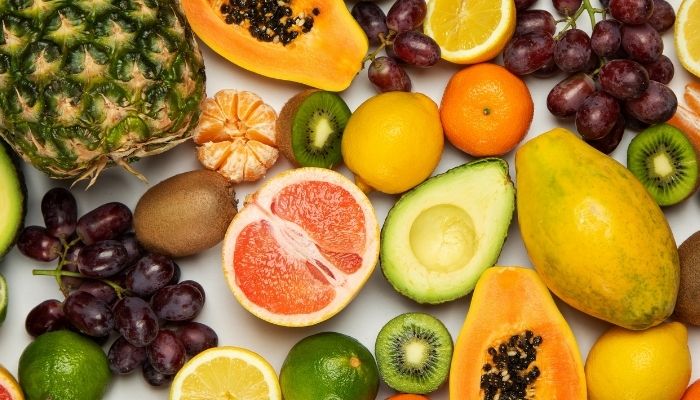Why Vitamin D Matters for Every Vegetarian
You might be surprised to learn that even in sunny countries, vegetarians can struggle with vitamin D deficiency. Many of us assume that a plant-based diet automatically provides all essential nutrients, but vitamin D often slips under the radar. It’s crucial for bone health, immunity, and maintaining energy levels throughout the day. The good news? There are accessible, natural ways to boost your intake without relying on supplements. Vitamin D foods for vegetarians offer a practical, enjoyable, and sustainable way to ensure you get enough of this essential nutrient daily. By understanding which foods deliver the best results and learning simple ways to incorporate them into meals, you can protect your health while staying entirely committed to a vegetarian lifestyle. This article will guide you through the most effective vitamin D sources, why they matter, and how to make them a regular part of your diet.
What Are the Best Vitamin D Sources for Vegetarian Diets?
Finding reliable vitamin D sources for vegetarians can feel tricky at first, but a few simple foods pack a powerful punch. Mushrooms, especially those exposed to sunlight or UV rays, are surprisingly rich in vitamin D. Fortified plant-based milks, like almond, soy, or oat milk, offer a convenient option to boost daily intake. Dairy products, including yogurt and cheese, remain excellent sources for those who include them in their diet. Fortified cereals are another easy way to start the day with a vitamin D boost.
Including these foods consistently can make a noticeable difference in energy levels, mood, and long-term bone health. For vegetarians, combining these sources ensures that even without meat or fatty fish, vitamin D intake can be sufficient.
- Mushrooms exposed to sunlight or UV rays
- Fortified soy, almond, or oat milk
- Yogurt and cheese for additional intake
- Fortified breakfast cereals
According to The Times of India, one in five Indians suffers from vitamin D deficiency, with Delhi showing the highest deficiency rate at 72%. This highlights the urgent need to focus on plant-based dietary sources of vitamin D.
Why Vitamin D Foods and Vegetables Are Critical for Immune Strength and Bone Health
The role of vitamin D foods veg extends beyond just filling a nutrient gap—it directly impacts immunity and skeletal strength. Vitamin D helps the body absorb calcium efficiently, which is vital for maintaining strong bones and teeth. Without sufficient intake, even minor deficiencies can lead to fatigue, weakened immunity, or bone density issues over time. Vegetarians, in particular, need to focus on these foods because typical plant-based meals may lack naturally occurring vitamin D.
Seasonal variations also matter. During winter months or if you spend most of your time indoors, natural sunlight may not be enough. Including vitamin D-rich foods in your meals becomes a critical strategy to maintain consistent levels. Even a few daily servings of mushrooms, fortified milk, or yogurt can make a real difference in long-term health.
- Strengthens bones and teeth
- Enhances immune defense against infections
- Supports energy levels and mood regulation
- Reduces risk of osteoporosis and other long-term health issues
Experts at NDTV emphasize that rising vitamin D deficiency in India, especially among children and teenagers, can be mitigated by increasing daily exposure to fortified foods and sunlight.
How to Add Vitamin D Foods to Vegetarian Meals Every Day
Integrating vitamin D-rich foods into your daily routine doesn’t have to be complicated. Start with breakfast: fortified cereals or plant-based milks can be combined with fruits for a nutritious start. Mushrooms can be sautéed into curries, added to sandwiches, or mixed into pasta for lunch or dinner. Yogurt makes a simple snack or dessert, especially when paired with nuts and seeds for added nutrition.
Consistency is key. Eating these foods regularly ensures steady vitamin D levels, which support energy, immunity, and overall wellness. Additionally, pairing vitamin D foods with vitamin C-rich ingredients, like citrus fruits or bell peppers, can enhance absorption and maximize benefits. Small changes, like replacing regular milk with fortified almond milk or adding mushrooms to stir-fries, can have long-lasting effects.
- Include fortified plant-based milk in smoothies or breakfast cereals
- Sauté mushrooms with spices in lunch or dinner dishes
- Mix yogurt with fresh fruits or seeds for a nutritious snack
- Combine vitamin D foods with vitamin C-rich foods for better absorption
What Lifestyle Habits Enhance Vitamin D Intake for Vegetarians
Beyond diet, simple lifestyle adjustments can complement vitamin D consumption. Sunlight exposure, even just 15–20 minutes a day, stimulates natural vitamin D production. For indoor workers, positioning near windows during daylight hours or enjoying short outdoor breaks can help. Regular physical activity, especially outdoors, contributes to both bone health and overall nutrient metabolism.
Additionally, monitoring your diet and supplementing only if necessary ensures you maintain healthy levels without overconsumption. Being mindful of fortified foods, checking labels, and planning meals makes it easier to maintain consistency. This holistic approach—combining wise food choices with healthy lifestyle habits—ensures you stay energized, immune-strong, and bone-healthy year-round.
- Aim for 15–20 minutes of sunlight exposure daily
- Incorporate outdoor physical activities regularly
- Track vitamin D intake through fortified foods
- Supplement only if dietary sources and sunlight are insufficient
Conclusion
At Livlong Protection & Wellness Solutions Limited (LPWSL), we understand the unique challenges vegetarians face when it comes to maintaining adequate vitamin D levels. Our goal is to empower you with practical knowledge and strategies that fit seamlessly into everyday life. By incorporating vitamin D-rich foods into your diet, whether you’re a vegetarian or not, you can naturally safeguard your bones, boost immunity, and enhance energy.
Choosing the right foods and habits isn’t just about nutrition—it’s about taking proactive steps toward long-term well-being. Small, consistent choices, such as adding mushrooms, fortified milks, or yogurt to your daily meals, can transform health outcomes over time. We encourage you to start today: explore the variety of vegetarian-friendly vitamin D options, make them part of your meals, and experience the lasting benefits of nourishing your body the natural way.

